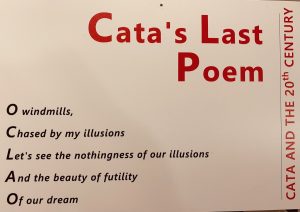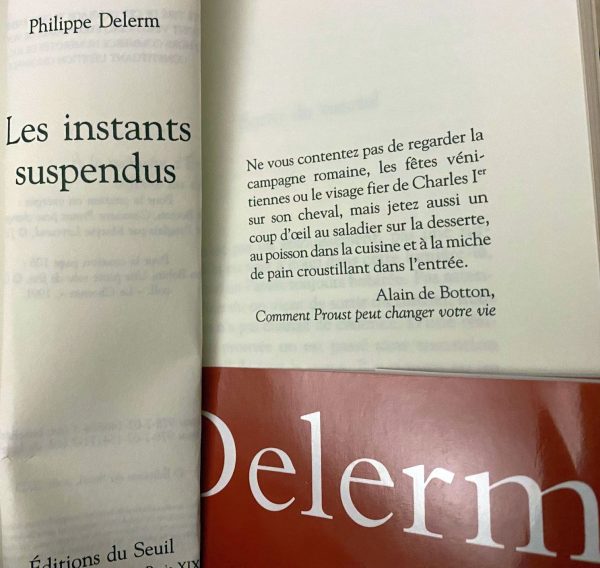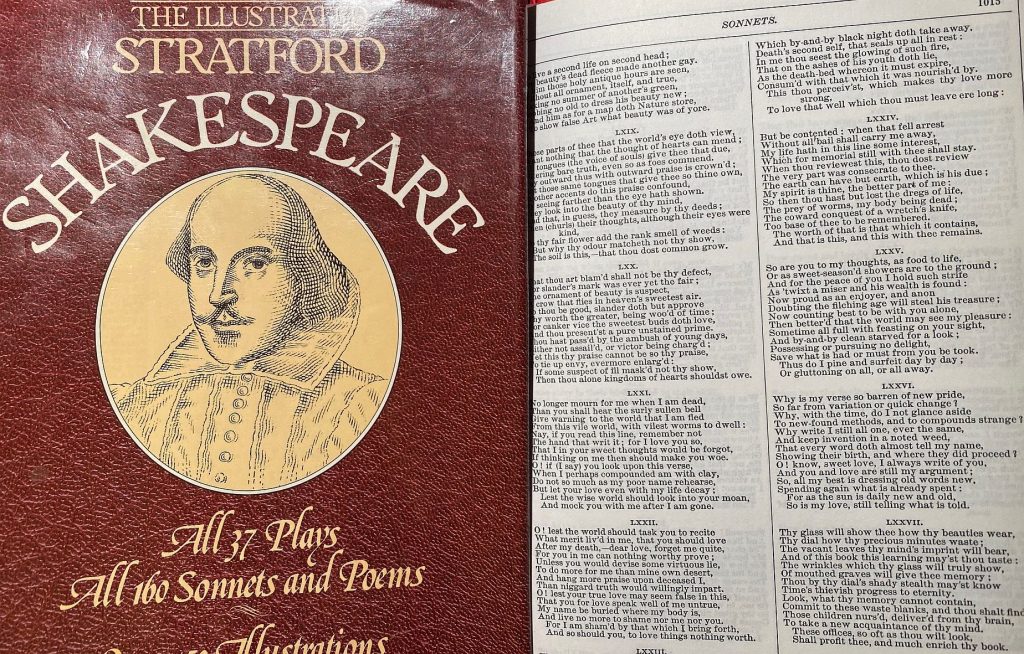Many musicians and poets remain unknown to larger audiences. “A complete unknown“, young singer, musician and songwriter Bob Dylan has reached fame and fortune with his poetry and popular songs that marked a whole generation. He became the best known unknown of country music in the USA who found sympathy for his expression of protest across the world. „How many times must the canonballs fly, before …“. At the time of renewed militarization of the Western states to defend our way of life, the protest song is oriented towards Russia to stop its war in Ukraine.
The poster in Berlin to advertise the biographical movie on a „Litfaßsäule“ (round sign posting column) dating back to the 1920s in Berlin brings us back into the historical state of mind of crucial crossroads in history. Retreat from war, preventing war and aggression remain topics for us today as well. Peace might be the happy time in between wars marking history.
Berlin is a great place to walk through more than a century of war and aftermath. Rebuilding takes decades and is part of the Berlin state of mind. as well as a sign „to overcome“ conflicts.

Tears mastered
Not many authors find decent ways to write about sad moments and the mastering of tears. Can we master tears? Should we even try to? For authors the question poses itself of a different kind. How do I write about emotions in which a person bursts in tears or sheds a single tear.  Even mastering tears or the delayed unmastered tears give rise to ample drama. Have you found a poet or author to whom you relate through the sorrows s/he expresses? Reading itself is a process of mastering tears due to the possibility to go through a wide spread of negative and positive emotions.
Even mastering tears or the delayed unmastered tears give rise to ample drama. Have you found a poet or author to whom you relate through the sorrows s/he expresses? Reading itself is a process of mastering tears due to the possibility to go through a wide spread of negative and positive emotions.
Towards the end of her life Cata Dujšin – Ribar wrote a poem that links to the imagery of the Norwegian poet Jon Fosse. Thanks to the exposition of her paintings and writing in the Zagreb City Museum Cata can become known to a wider audience.  Hardly any traces in the internet of her writings in English make her even more of a local hero and an early female role model. The windmills are powered by the nothingness of our illusions. The beauty of futility is revealed in our dream. She puts it so much better. The biography and work of Cata Dujšin – Ribar summarises to some extent the whole history and misery of the 20th century beyond the Balkan region in a few words.
Hardly any traces in the internet of her writings in English make her even more of a local hero and an early female role model. The windmills are powered by the nothingness of our illusions. The beauty of futility is revealed in our dream. She puts it so much better. The biography and work of Cata Dujšin – Ribar summarises to some extent the whole history and misery of the 20th century beyond the Balkan region in a few words.
Comme les peintres
« Moi aussi, comme les peintres, j’ai mes modèles ». So beginnt ein Gedicht von Jacques Prévert. Ein Klassiker der französischen Poesie. Prosagedichte sind eine Gattung der Gedichte, die in kurzen Texten einen Moment oder Augenblick einfangen und sublimieren. In diesem Genre publiziert Philippe Delerm seit Jahren prosaische Gedichte. Der in 2023 erschienene Band „Les instants suspendus“ reiht sich ein in die Sammlungen von Momentaufnahmen, die sprachlich veredelt die Wahrnehmungen schärfen und sie zum Salz des Lebens werden lassen.
Für Weinliebhabende drängt sich die Assoziation „vendanges tardives“ (späte Lese) auf. Während wir in deutschen Weinanbaugebieten ganz nüchtern die zu erreichenden Öchsle für die Spätlese zählen, verbindet Delerm mit den „vendanges tardives“ „une jeunesse prolongée, glissant vers la mélancolie, et célébrant mezza voce le mariage de l’automne et de l’été “. (2023, S.87).
Die Sammlung „Les instants suspendus“ – auf Deutsch vielleicht „Momente, die schweben“ bietet zahlreiche, aufheiternde und, ja auch erhebende Augenblicke, die trotz der Intensität der Schilderung für viele Menschen Anknüpfungspunkte bieten. Übersetzen lassen sich die Szenen schon, aber es schwingt bei den kurzen 200-300 Wörter umfassenden Texten viel französisches Flair mit.
Bei „Commander l’eau“ wird „Le bruit de l’eau dans la bouteille devient chant“. Wasser einfüllen ist Musik. Oder, « Le moteur de la deux-chevaux », der Motor des 2 CV, « c’était humble et c’est devenu chic », das war bescheiden und ist schick geworden. (S.82). Das federnde, schwebende Fahrgefühl wird bei Delerm ein „accord prolongé“, zu einem nachwirkenden, verlängerten Akkord.
Aus dem Netz der Spinne (toile d’araignée) wird der Stern der Spinne (étoile d’araignée) auf Seite 101. Fast alle hätten diesen Versprecher schon gemacht, aber es ist einer der Wenigen, den die Erwachsenen nicht berichtigen.
Lassen wir den Kindern ihre „instants suspendus“, ihre Momente der Poesie.
(Image: Innenansicht und S.9 Anregung Proust zu lesen im Vorspann). 
Poetic Coffee Break
The rather stiff and rigid structure of the “Staatsbibliothek” in Berlin does not yet have a reputation to be a place of poetry, translation of poetry and recitals. This is about to change. As a student, researcher or lecturer I would have adored to see my library proposing a poetic coffee break. I would have gone for the necessary break in the afternoon, the coffee and, okay why not, a poetic experience. This time it was different. The organisers, “ilb and Stabi” got together and Ursula Jäcker together with Michael Bucher presented poetry from Shakespeare (Sonnet) in English followed by the German translation by Wolf Biermann.
Translating poetry is a very tricky thing. Just try it yourself and you will be full of admiration for the admirable work of translators of words, sentiments, rhyme and rhythms. The presentation of Biermann’s comments on his own work on translating Shakespeare’s sonnets gave interesting additional information on the short and precise English original and the longer, somehow fat translations into German (Biermann’s words). Thanks for the indication that Biermann deviated from the Shakespearean “iambic pentameter” to add a sixth foot most of the time (to be checked OMG). The choice of numbers 6, 18, 27, 66, 73, 76, 121, 147, 154 from the Shakespeare Sonnets were witty and entertaining for a coffee break. For example, from 27:
“And keep my drooping eyelids open wide,
Looking on darkness which the blind do see:…”
Also, from 76:
“Why write I still all one, ever the same,
And keep invention in a noted weed,
That every word doth almost tell my name,
Showing their birth, and where they did proceed?”
More than 400 years ago, these rhymes were drafted and still today writers and learners, at the Stabi and beyond, can somehow identify with the intricacies of the process of creative writing.
More of this, we need, today and for tomorrow. THX. 

